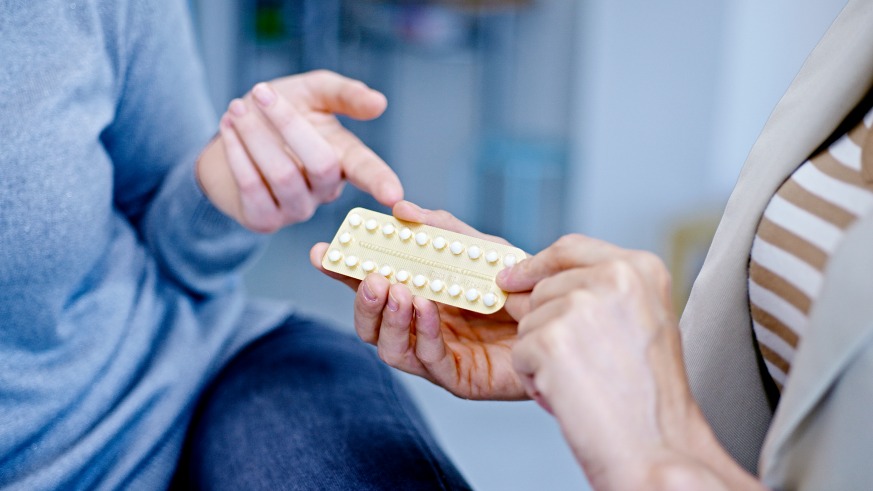Women have more choices than ever when it comes to contraception, but the birth control pill remains the most popular option. The reasons range from woman to woman, but generally it’s the go-to option because it’s effective with a 99 percent protection against unwanted pregnancy when used correctly.
But birth control pills, like any medication, do have side effects that shouldn’t be ignored.
How safe is the pill?
The side effects of birth control pills are minor and rare — for most women. Headaches, weight gain, nausea and breast tenderness are the most common, but there is a small percentage of women who are at risk of developing more serious side effects, including blood clots, that can be deadly.
Abbey Parkes was one of those women. The British woman was prescribed Logynon for birth control at 14 after complaining of menstrual pain and took it without incident for the next six years. What Parkes — and her doctor — didn’t know was that she had a rare condition called Factor V Leiden that, when paired with her birth control, caused a blood clot that killed her in August 2016.
What is Factor V Leiden?
Factor V Leiden is a genetic mutation that makes the blood more likely to clot. It has to be passed down genetically by both parents, meaning “only about one in 5,000 people would have it,” Jane Dickson, Vice President of the Faculty of Sexual and Reproductive Healthcare (FSRH) and a consultant in sexual and reproductive healthcare at Oxleas NHS Foundation Trust, told Cosmopolitan UK.
“The contraceptive pill on its own makes your blood a little bit more likely to have a clot. So if we put it in normal terms; if you had 10,000 women who weren’t on the pill, two of those might have a blood clot,” she added, but women with Factor V Leiden are about 35 times more likely to develop a blood clot.
The danger, she adds, is that it’s incredibly difficult to detect before it’s a problem.
“There’s no way of knowing on the whole if someone’s got Factor V Leiden or not, because it’s so rare and because it’s quite difficult to test for,” she said. In Parkes’ case, she went to the hospital, but was diagnosed with an infection. A second doctor gave her some steroids after she came in complaining of shortness of breath, but ultimately the pulmonary embolism killed her.
Can birth control cause strokes?
Another British woman, Natalie Trickett, has a similar story. Trickett, now 32, said she developed a blood clot from taking the birth control pill Microgynon. The clot eventually led to a stroke.
The otherwise-healthy mom of two also went to her doctor after she passed out one morning, only to be sent home with migraine medication. She eventually went to Royal Blackburn Hospital where doctors told her the hallucinations, fainting and facial paralysis was from a stroke.
“There was no other reason for me suffering a stroke at such a young age,” she told The Sun. “I don’t drink or smoke and they checked out my heart and everything was fine with that.”
A recent report published in the Journal of the American Medical Association backs her up. The report — an analysis of 16 studies on birth control and strokes — found that women who take the pill are twice as likely to experience strokes than women who don’t take them.
The results are terrifying, but misleading since that translates to only one additional stroke in every 24,000 taking a low dose of birth control and one in every 12,000 for those on higher doses. Your best bet: Don’t stop taking the pill (unless you want to), or switch to a hormone-free option, like the copper intrauterine device (IUD) ParaGard. You can also opt for other — but less effective — options like condoms, a diaphragm or a cervical cap fitted by your doctor.
The most important thing, no matter your choice, is to keep close tabs on how you feel. Don’t hesitate to see you doctor if something doesn’t feel right.
“We always advise that if anyone develops pain in their legs or chest, or shortness of breath [while taking the pill], they should seek medical help,” Dickson told Cosmopolitan.



















